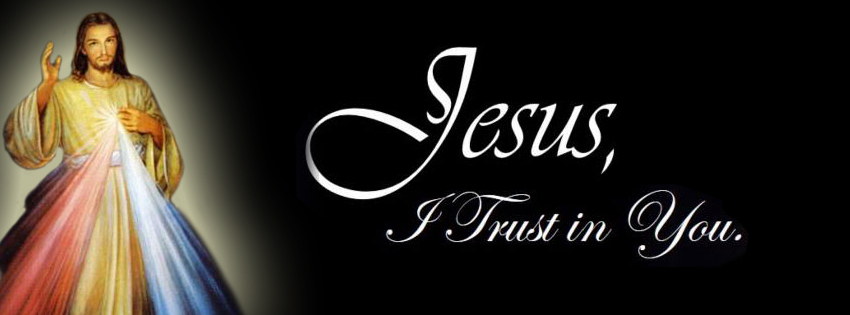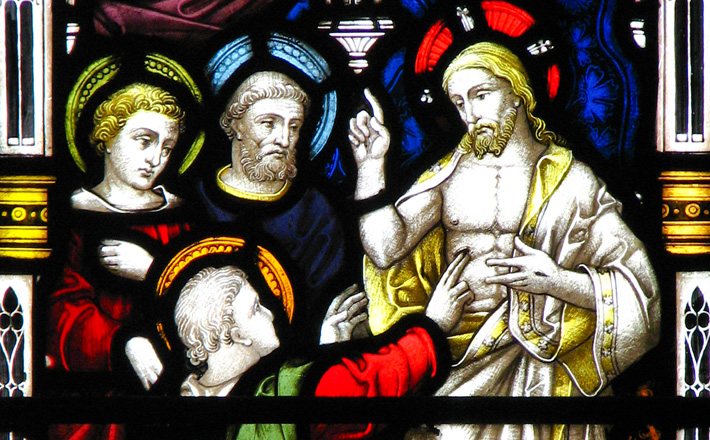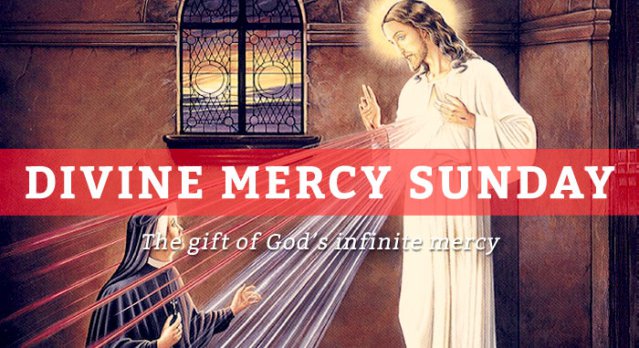Reflection for Second Sunday of Easter (Or Sunday of Divine Mercy). Year B. 2018
– By Fr Ugo Ikwuka
Archway, London
Quasimodo is the half-blind hunchback bell-ringer of Notre Dame Cathedral in Victor Hugo’s classic French romantic novel ‘The Hunchback of Notre-Dame’ which has been adapted in many films.
He was so named because he was born on the Sunday after Easter, which is traditionally known as the Quasimodo or Low Sunday.
The Sunday is apparently so named to indicate the contrast between it and the immediately preceding greatly eventful Easter Sunday.
However, on April 30, 2000, Pope John Paul II, designated the Sunday after Easter as Divine Mercy Sunday, in honor of the Polish Nun, Sr. Faustina Kowalska, who died in Krakow in 1948 and who was canonized on that day.
Sr. Faustina was gifted with extraordinary visions and experiences of the Lord Jesus the most famous of which was the Lord revealing his sacred heart from which came rays of light, red and white, which she interpreted as the radiating forth of the Divine Mercy.

It was significant for John Paul II that Sr. Faustina died on the eve of Poland’s crucifixion at the hand of the Nazis.
He recognised the 20th century as perhaps the crudest in human history, mostly marked by violence, genocide and deep hatred, hence in most need of Divine Mercy.
He therefore saw in the visions of Sr. Faustina an indication that God wants to specially bestow on the 20th century His mercy. What Sr. Faustina saw pouring forth from the heart of Jesus is the love that exists among the three Persons in one God – the Father, the Son and the Holy Spirit.

As God is love, mercy is not just one of God’s attributes; it is the very nature and essence of God. It is based on this that God made what could pass for His most affectionate pronouncement in the whole of the bible:
“Can a mother forget the baby at her breast and lack compassion for the child she has borne? Even if she does, I will never forget you!”
It is also based on this that Psalm 118 declares:
“Let the house of Israel say, His mercy endures forever. Let the house of Aaron say, His mercy endures forever. Let those who fear the Lord say, His mercy endures forever.”
Divine Mercy is mostly manifested in the forgiveness of sins as clearly evident in this Sunday’s Gospel.
Lurking awkwardly behind closed doors were the disciples of Jesus, those who had denied, betrayed and abandoned their master at the moment of truth; some had run away naked at the heat of his passion. They must have been covered with shame as Jesus suddenly appeared in their midst.

They must have been frightened too that the moment of reckoning has come; the moment of dressing down and telling off, not only for their cowardly behaviour but also for their lack of faith in him. But instead Jesus spoke that simple word ‘shalom’ (peace) which sums up everything God wants for his people – physical, spiritual and psychological wellbeing. It means everything good in every level. Instantly, they were healed of their awkwardness.
The risen Jesus shows his hands and his side lest they forget what they and the world did to him, but he did not follow with the word of blame or resentment, only the word of mercy.
He goes further to empower them to become the agents of the healing mercy of God; he breaths on them and says, receive the Holy Spirit, whose sins you forgive, they are forgiven, and whose sins you retain, they are retained. This is the foundation for the Sacrament of Reconciliation (Confession) which has existed in the church as the privileged vehicle for Divine Mercy from that moment to the present day.

The great G.K. Chesterton was asked why he became a Catholic and he answered: ‘to have my sins forgiven’.
He recognised that this is the greatest grace the Church can offer – the restoration of the divine friendship, the forgiveness of our sins.
Ironically, this great sacrament is now sadly underused in a world and time in most need of divine healing.
Let us therefore celebrate the mercy of God this Divine Mercy Sunday and the best way to do so is by going to confession.





